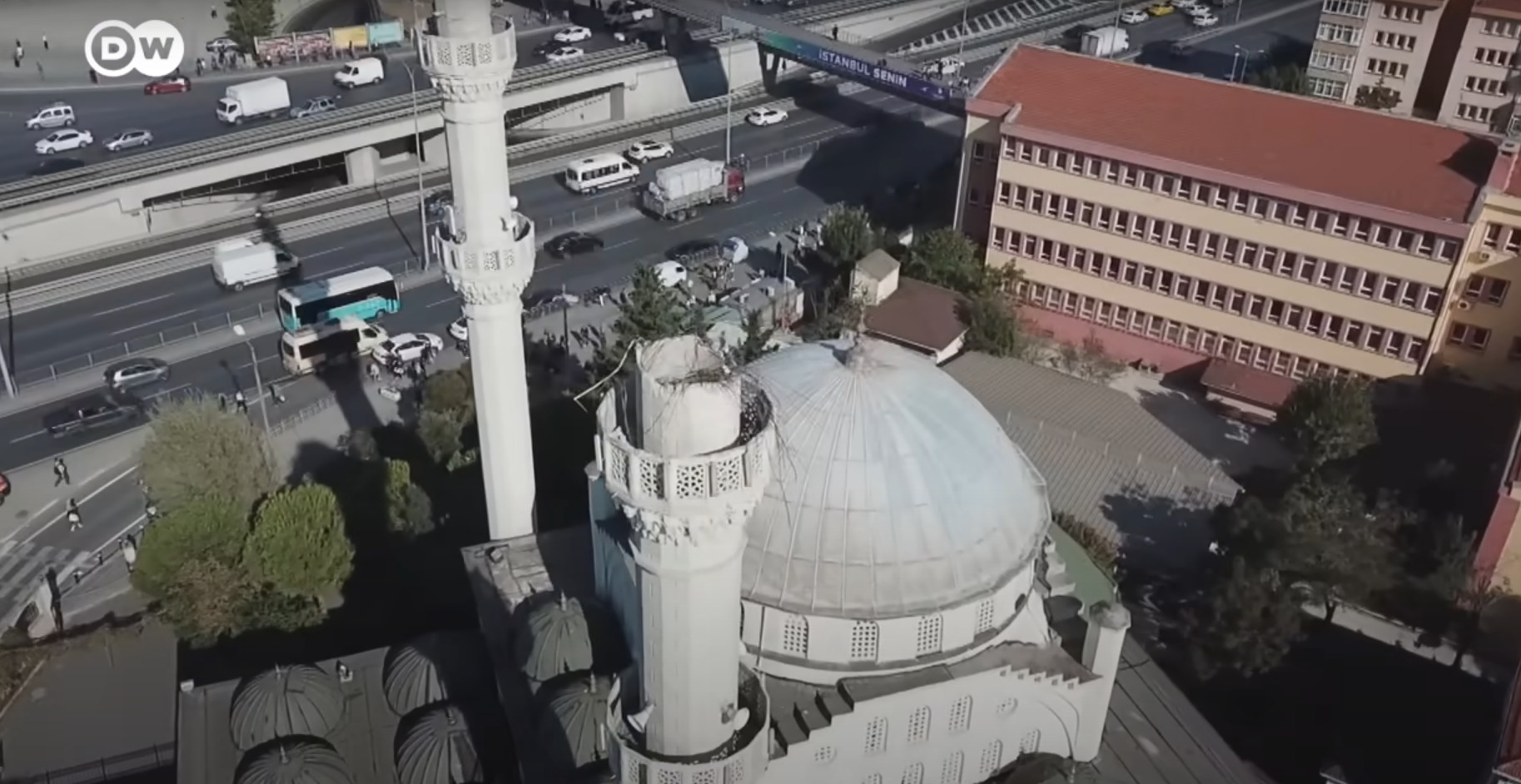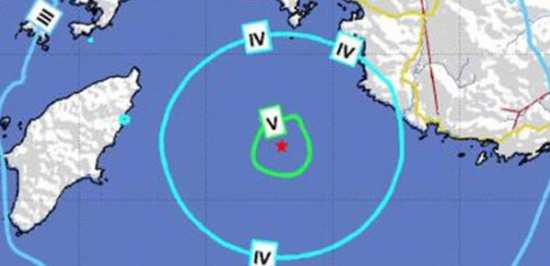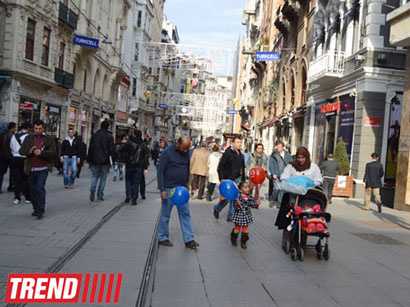- Foreign & Commonwealth Office
Living in Turkey
How to prepare for an earthquake in Turkey and guidance on Turkish healthcare and driving.
Overview
Turkey is an EU candidate member state. To fulfil candidacy requirements Turkey is aiming to comply with EU laws but there are still some laws that are dissimilar.
This guide sets out essential information for British nationals visiting or residing in Turkey, including visa and residency requirements, healthcare, earthquake preparedness, and vehicle and driving licence laws.
Entry and residency requirements in Turkey
Visas for Turkey
British nationals need a visa to enter Turkey, except for cruise ship passengers entering the country for a day trip and returning to the ship the same day.
British citizens can get a multiple entry visitor visa, valid for 90 days, on arrival at any port of entry on payment of £10 in cash (Scottish currency is not accepted). You can also get a visa in advance from the Turkish Consulate in London.
Turkish visit visas issued on arrival are valid for multiple stays up to a maximum of 90 days in a 180-day period.
If you plan to remain in Turkey for a period of more than 90 days, you should either apply for a longer stay visa before you travel, or get a residence permit from the local authorities in Turkey before your 90-day stay has elapsed. If you exceed the 90 day limit, you may be fined, deported and banned from re-entering the country.
Residency permits in Turkey
Residency permits are obtained after arrival in Turkey.
Formal application must be made to the police authorities in the province where you reside, or to the Aliens department of the Police in Ankara, if no fixed abode in Turkey is intended. HOWEVER, well BEFORE your departure from the UK, you should contact the Turkish Consulate in London for information about residency requirements and for information about importation of your personal effects, household goods or car.
A residence permit is an absolute necessity before you can clear any personal goods/car from Turkish Customs. Therefore an application for a residence permit must be made within one month from the date of your arrival in Turkey.
Failure to do so will result in additional daily storage costs for your goods/car by the Turkish customs authorities, which can be expensive.
On first application, residence permits may be issued for a two-year period, thereafter for a maximum of five years at any one time.
How residence permit fees are calculated
Residency permit fees for British nationals are 60 Euros/$80/year. Fees will be charged at $25 for one month and $5/month for each subsequent month. Residency permit book costs 198 TL(in year 2013). The fees will be converted to TL at the day of payment using official exchange rate. Further information is available from the Alien’s Department in your local area.
Work permits in Turkey
A work permit is required for employment in Turkey. Permits are issued by the Ministry of the Interior in Ankara. Contact the Turkish Embassy in London and/or your prospective employer in Turkey before travelling. Special arrangements for tour operators exist. You should contact your employer for full details.
Turkish healthcare for British visitors and residents
Visitors
The European Health Insurance Card is not valid in Turkey. Make sure you have adequate travel health insurance and accessible funds to cover the cost of any medical treatment abroad and repatriation.
If you need emergency medical assistance during your trip, dial 112 and ask for an ambulance. You should contact your insurance/medical assistance company promptly if you are referred to a medical facility for treatment.
Turkish Universal Healthcare Scheme
Anyone resident outside of the UK for more than 6 months is no longer eligible to receive medical treatment under the NHS. Some residents take private health insurance or join the Turkish Social Security Universal Healthcare Scheme. Others prefer to pay as they go or to return to the UK when they need treatment.
We can only give general information on the SGK (Social Security Institution) healthcare scheme. If you have specific questions, please speak to your local SGK office. We can give following general information:
- the scheme is compulsory for all foreign residents who have resided in Turkey for one year or more. However, we secured an exemption for British nationals which means that you don’t need to join but you can if you want to
- if you want to join, you should apply within one month of completing one year’s residency. If you don’t apply within one month but decide to apply at a later date, you have to pay a fine equivalent to a monthly minimum wage and you will have to pay arrears for each month that you missed.
- the premium for all foreigners is TL234.86 per month (between 01/01/2013 to 30/06/2013).
Prepare for earthquakes in Turkey
Many parts of Turkey lie on a major seismic fault line and are subject to earthquakes and tremors. In August 1999 an earthquake measuring 7.0 on the Richter Scale resulted in over 17,000 deaths when it struck Izmit, a town 55 miles south of Istanbul.
The Turkish government will be responsible for assisting foreigners immediately after a major earthquake or serious natural disaster. It is important to co-operate with these authorities. The British Embassy in Ankara the Consulate-General in Istanbul and our other consulates in Turkey will try to find out where British nationals affected by the disaster are, checking on their condition. We will pass information about your welfare back to the Foreign and Commonwealth Office in London, or to your relatives.
Before you travel
- prepare a small personal earthquake kit to take with you (below).
- find out where the British Embassy/Consulate is located relative to where you intend to visit/stay and the relevant contact details (you can do this online).
- familiarise yourself with the advice on what to do in an earthquake (below).
- ensure you have adequate travel insurance.
- ensure you have emergency contact details of your next of kin and your GP with you.
- make several copies of your passport photo page. If you are able to, make a colour scan of the photo page and laminate it and keep a copy in your earthquake kit, in your briefcase/handbag, and in your jacket (plus a couple of spares). This helps if you need to show who you are and, if you do not have your passport with you, can be used for identification purposes.
Earthquake Kit
Prepare a small personal earthquake survival kit per person in a small backpack, comprising (as appropriate):
- first Aid kit
- whistle and key-ring torch
- water purification tablets
- packets of high-energy foods (enough to last 24 hours)
- wet wipes
- a small wash bag containing (as appropriate): spare toothbrush, toothpaste, flannel, soap, feminine hygiene items, toilet paper, tissues, condoms (can be used as a water container)
- spare prescription medication
- spare spectacles/contact lens kit
- pen and small pad of paper
- small pair of scissors and/or multi-tool penknife
- collapsible umbrella
- emergency money (small denominations)
All of these items can be packed into a small space and do not take up much weight. Pack things like toilet paper in re-sealable plastic bag to keep it dry. Pack all these items in your check-in luggage, if flying. If travelling with children add items appropriate for their age, and especially for babies and infants.
The whistle and key-ring torch are essential and are probably the most important items in this list. Ensure that you keep these on your person throughout the day and within reach on your bedside table at night. If you become trapped after an earthquake either can be used to make your presence known; the whistle, even if weakly blown, is likely to be heard by rescuers/rescue dogs.
If you are staying with relatives or with private individuals, they should already have an earthquake kit for their residence, sufficient and suitable for the number of people staying, including guests. Check with them before you travel that they have such a kit and related supplies. Expect that it is unusual for people to be so well prepared, so when they tell you that they are, it will be a comforting surprise.
Earthquake preparedness in Turkey
As soon as possible after arrival at your destination and on unpacking your suitcase:
- familiarise everyone with earthquake emergency procedures and develop a plan of action, such as arrange where to meet. Parents may wish to consult with their child’s school about its emergency plans
- find out where your designated evacuation area is (your landlord or ward office will be able to help you)
- know your route home from work/school on foot- in the event of a major earthquake, public transportation and roads will not be accessible
- check the emergency escape routes from your room, important also in case of fire and know where the assembly points are located
- put a bottle of water (minimum 0.5 litres) per person (more if in a hot climate) in your backpack
- prepare your personal earthquake bag and place it where you can easily reach it as you leave your room
- ensure that you have easily accessible a jacket suitable for the time of year and weather conditions. If in winter, ensure you have hat, gloves, and waterproof jacket (supplemented by your umbrella to help keep you dry); in summer, sunglasses, sunhat and sun screen cream; an umbrella can be used to provide shade as a parasol
- at night, place your whistle and torch beside your bed. Try to ensure that there is no picture with glass front above your bed. Place footwear upside down or under cover so that in the event that glass from such a picture is shattered, fragments do not go into your footwear and cause lacerations when you put the footwear on
The idea behind this personal earthquake kit is that, immediately after surviving a major earthquake, you can grab your earthquake bag, evacuate safely and without undue delay from the premises where you are staying, with enough personal supplies to survive for 24 hours without needing help from anyone else.
General behaviour
Earthquake preparedness is mostly common sense and there is no reason to be paranoid about the potential risks. However, in a seismically active region it is best to be aware of your surroundings and take some simple precautions so you do not put yourself at unnecessary risk. Just as you need to be aware of traffic movements and regulations about crossing the road in a place with which you are not familiar, so you should also be sensible in relation not only to earthquakes but also to fire.
What to expect when a major earthquake occurs
If a major earthquake (magnitude 6 or more) occurs, it is possible that the following might happen:
- there may be a very loud noise like a passing train
- buildings and the ground may shake violently for between 15 and 90 seconds, sometimes even longer
- weak building facades may collapse into the streets, glass windows and panels may shatter, roof tiles may fly off, chimneys may collapse, etc
- it may be hard to stand up, let alone walk due to the ground shaking; in severe cases the movement may be sufficient to throw you to the ground
- electricity, water and gas may fail or be switched off
- sprinkler systems and fire alarms may be triggered
- telephone systems (landlines and mobile) may shut down for significant periods after an earthquake
- a tsunami may occur in coastal areas or in areas bordering large lakes. Take note of any tsunami warnings issued following an earthquake
- be prepared for aftershocks; these may be almost as strong as the main event, may start to occur within minutes of the main ‘quake, and may occur for days to months after a strong earthquake
What to do during a major earthquake
If you’re indoors:
- stay there; drop to the ground, duck under a sturdy desk or table to take cover or get into a corner of a room, NOT in a doorway, and hold on to whatever you are hiding beneath. Use the ‘Duck, cover and hold’ actions
- if you are in bed, stay there until the shaking has stopped.
- if in a high-rise building, stay away from windows and outside walls. Do not use lifts or staircases during the shaking.
If you’re outdoors, stay there; move into an open area away from trees, buildings, walls and power lines.
If you’re in a vehicle:
- stay in the vehicle until the shaking has stopped
- pull over to the side of the road and stop but away from buildings, overpasses, underpasses, trees and overhead cables, if possible
- only proceed, and with great caution, once the shaking has stopped but avoid bridges and structures that might have been damaged by the earthquake
If you’re in a crowded place crouch in the duck, cover and hold posture and DO NOT rush for the nearest exit. Wait until the shaking has stopped then evacuate the building once you know the exit is clear.
If you’re trapped under debris:
- do not move about or kick up dust
- cover your mouth with a handkerchief or clothing
- do not light a match (in gas of gas leaks)
- use a whistle if you have one available. Tap on a pipe or wall so rescuers can locate you. Shout only as a last resort. Shouting can cause you to inhale dangerous amounts of dust
Your options will be dictated by your circumstances immediately after a major earthquake, the extent of damage to the local infrastructure and the level of preparedness of the authorities. The severity of damage and the number of fatalities and casualties can be worse in poorly-prepared countries than in those where precautions have been long established, even for a moderate earthquake. Be prepared for a general state of chaos and confusion and do not be surprised if telephones (landline and/or mobile) do not function for many hours after a major earthquake.
Assuming that there has been a significant amount of damage and disruption to local infrastructure, you are advised to seek advice from your nearest British Embassy or Consulate, which should have an Earthquake Contingency Plan. When they are able, they will provide assistance in communicating with your relations in the UK and will advise as to what they are able to provide in the way of further support. Do NOT assume that they will automatically provide you with food and shelter or emergency evacuation. In the most severe disasters, it may take several days to provide assistance. Furthermore, you may be a long way away from the nearest embassy/consulate making it impractical to try to reach the embassy/consulate in person.
You should check your insurance policy before you travel to ensure that you are aware of what support is available in the event of a natural disaster and what you should do and who you should contact should such an event occur.
- AKUT Search & Rescue Association
- KIZILAY(Turkish Red Crescent)
- Bogaziçi University Kandilli Observatory and Earthquake Research Institute
- AKA Search Rescue Research Association
Driving in Turkey
Bringing your car as a visitor
If you are travelling through Turkey to another country or just visiting, you need to get a visa/permit for your vehicle on entry and you must ensure that you have all the documentation for your car including registration papers, full insurance, a carnet de passage and your driving licence. You can only keep your car in Turkey for 180 days in one year. You will be fined and even your car can be confiscated if you fail to do so.
Bringing your car as a resident
You may temporarily import your car to Turkey if you fulfil some requirements. You can find detailed information on Turkish Touring & Automobile Association website.
Driving licenses
If you drive in Turkey, you must have either an International Driving Permit or a notarised copy (in Turkish) of your UK driving licence. Provisional driving licences are not recognised.
You will need an ‘A’ category standard motorcycle licence to hire a motorcycle over 50cc in Turkey. An ‘A1’ category ‘light motorcycle’ driving licence is only suitable for motorcycles below 50cc. By law you must wear a helmet. Failure to do so could result in a heavy fine.
Traffic accidents in Turkey
The following is a step-by-step guide on what to do if you are involved in a traffic accident in Turkey.
From 1 April 2008 it is no longer necessary to call the police to the scene of an accident in the following circumstances:
- when the accident involves two or more vehicles
- where there is only material damage to vehicles
- when no one is injured or killed
- where all concerned parties AGREE to the cause and who is liable for the accident and providing each driver completes the correct form Kaza Tutanagi(Traffic Accident Form) and all parties involved sign each form, including witnesses if any
- guidance to complete traffic accident form (Tutanak örneği)
- you should then submit the form to your insurance company who will use the form in conjunction with the other insurance companies concerned to settle liability. How to access the form and instructions how to complete the form are in English at the foot of this document)
In the event of a serious accident or if an agreement cannot be reached in a minor accident, you should immediately call 155 for Traffic Police assistance and follow these steps:
- do not move your vehicle from the point of impact unless invited to do so by the traffic police or gendarme
- it is not advisable to accept an offer of financial settlement from the other parties involved. Wait for the police to arrive
- once the police arrive you will be breathalysed and asked to produce your driving license and logbook. A preliminary report of the accident will be compiled by the police at the scene of the accident. Only when this report has been made should you move your vehicle. The police can take several hours to arrive at the scene of an accident. Do not move your vehicle
- it is essential to obtain the result of the breathalyser test and the official police report in order to make a successful insurance claim. You will be asked to collect this within three days from the District Police Station
- the Turkish Motor Insurers’ Bureau has information on what to do in the event of an accident involving a foreign car
Mobile phone use in Turkey
Shorte-trm visitors
You can use your UK mobile in Turkey during short stays if you have set up international roaming before you arrive using one of the network operators;:Avea, Turkcell, Vodafone.
Residents and long-term visitors
Foreign residents are entitled to bring one mobile phone into Turkey within two calendar years for use during their stay in Turkey. The phone must be registered within one month of arrival to Turkey. You will pay some taxes when registering your mobile phone.
It is necessary to register the mobile phones in order to use them with SIM card bought from a Turkish network operator. (In order to use such a mobile phone with a SIM card bought in Turkey from a Turkish network operator, the mobile phone number assigned to the SIM card needs to be correlated with the IMEI number of the mobile phone. The handset can only be registered with one line. Phones not registered in this way will be blocked and unable to receive or make calls.)
No customs documents are required for the registration of mobile phones.
Mobile phones to be brought into Turkey are to be registered with the Telecommunication Institution or with the mobile phone shops of Turkish Network Operators (Avea, Turkcell or Vodafone).
Documents required for the registration of mobile phones are:
- passport (Identity details indicated on the passport)
- residency permit
- copies of all Turkish entry/exit stamps in the passport
No more than one mobile phone per person can be registered in two calendar years.
Disclaimer
The information contained in these notes is intended for your general guidance only. While care has been taken in compiling these notes, the accuracy of the information cannot be guaranteed and, of course, law and procedures may change from time to time. For these reasons, neither Her Majesty’s Government nor any member of the British consular staff can accept liability for any costs, damage or expenses which you might incur as a result of relying on these notes






